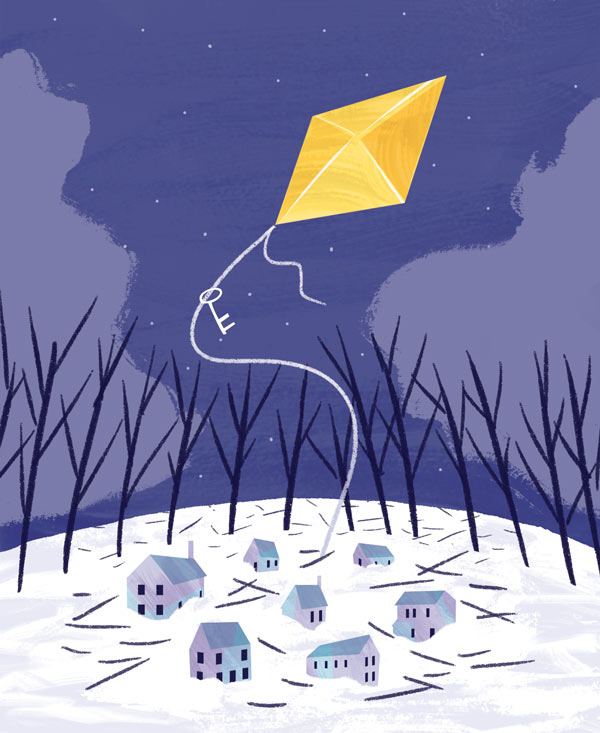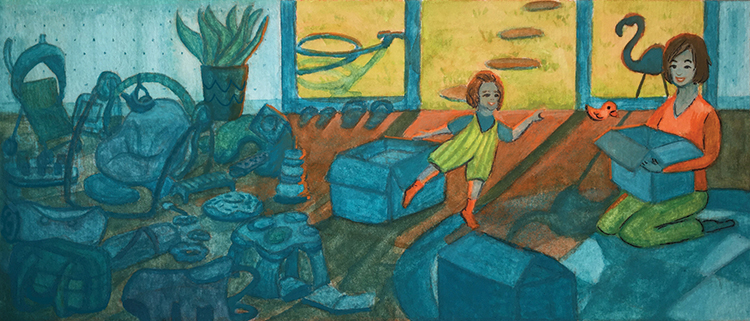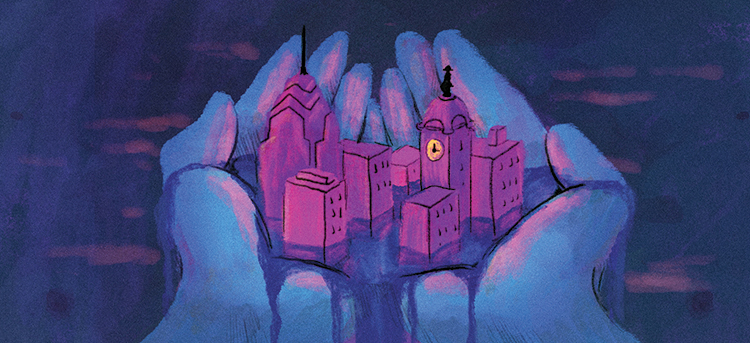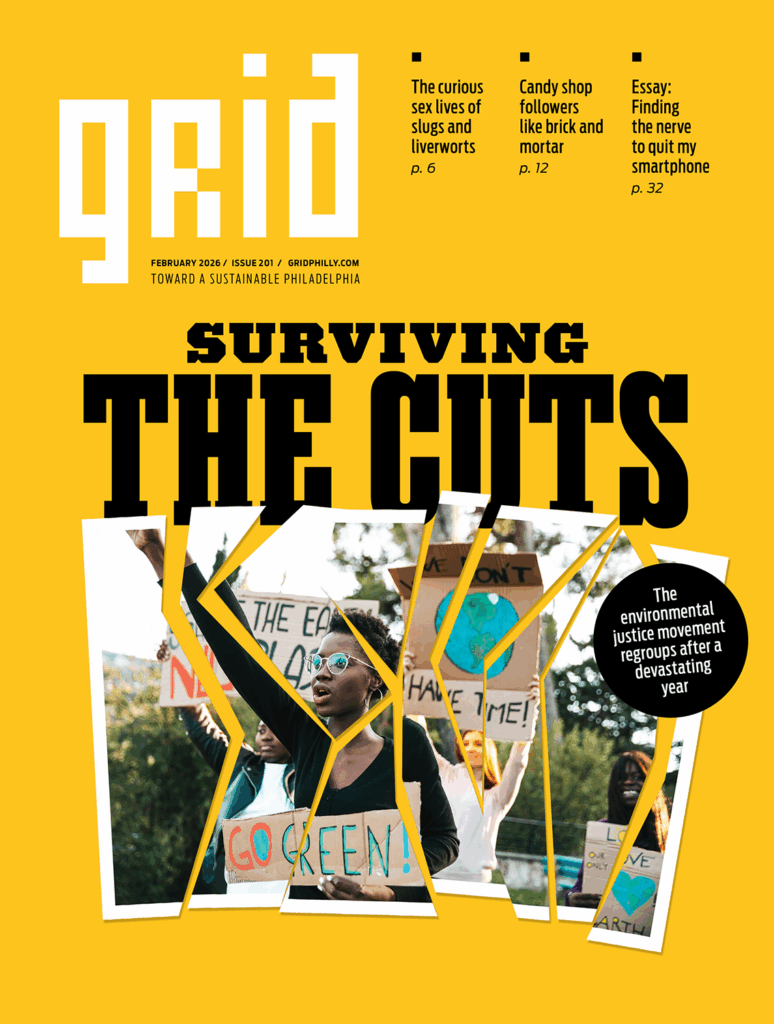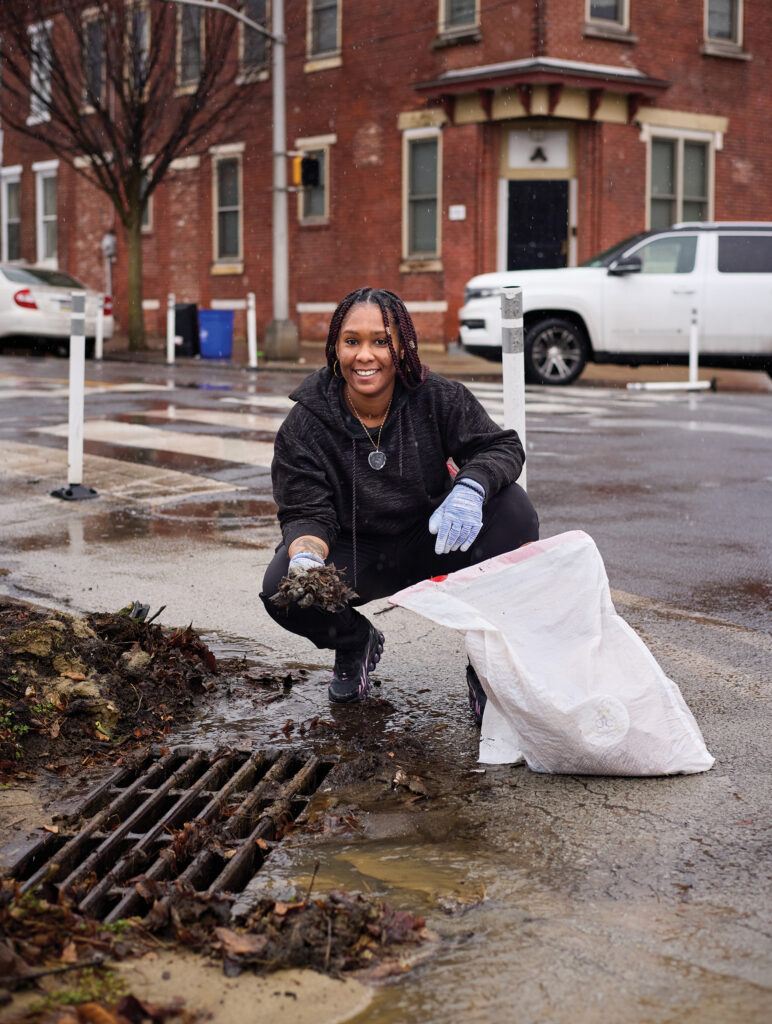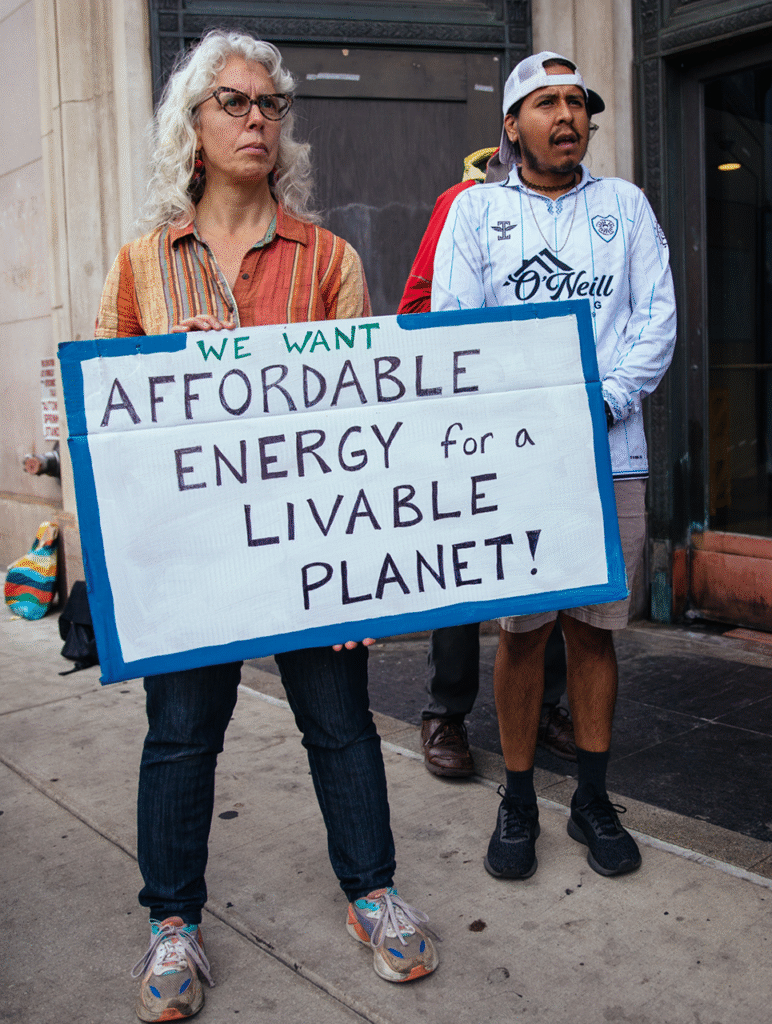At the peak of February’s ice storm, 715,000 households in the Philadelphia region were without power. But is being “without power” the same as being powerless? I live in a Montgomery County neighborhood that has managed to escape weather extremes: no tornadoes, hurricanes or drought-induced wild fires. But icy rain and bitter cold overwhelmed us. Towering trees glazed and shattered. Power lines festooned the streets. Sudden silence fell, leaving thousands of people powerless. Gov. Tom Corbett and President Barack Obama, in a rare show of accord, declared our region a natural disaster emergency area.
At first, the power outage offered novelty, like camping indoors—heating with a woodstove, lighting a gas stove with matches, eating by candlelight while surrounded by uncommon quiet. But as the hours mounted and the temperature dropped, I hated myself for flicking a useless light switch every time I entered a room. The romance receded. A gap opened between the haves with home generators and the have-nots, like me, moving all perishable food to the great outdoor freezer of my front porch. It’s said that nothing focuses the mind like adversity, so when faced with a chilly shower and shampoo, my thoughts turned to the utility of powdered wigs. Disguising unwashed hair is not an option I’d normally consider, but I’d been inhabiting the 18th century by reading Edmund S. Morgan’s 2002 biography, Benjamin Franklin.
It’s impossible to live in 21st century Philadelphia without being at least vaguely aware of Franklin’s legacy—the kite/key/electricity connection, the busybody mirrors, the Franklin stove, and the ubiquitous Franklin impersonator strolling Old City. More profoundly impressive are the institutions Franklin founded: The Library Company of Philadelphia, volunteer fire brigades, the Pennsylvania militia, the University of Pennsylvania, Pennsylvania Hospital, and the Philadelphia Contributionship, the insurance company that insures my home. Franklin did all this before turning 45, while running a printing business and writing Poor Richard’s Almanack.
Franklin started public institutions because he felt that 18th century government was not providing adequately for the real needs of all the people. In the absence of effective leadership, Franklin used the power of his newspaper and personal relationships to appeal to the self-interest of citizens. He convinced them to invest in endeavors that would serve, protect and enrich them, such as a fire brigade, an earthworks defense and a library. His was a simple strategy that harnessed the personal resources of genuine democracy and yielded enduring outcomes.
After 60 hours of privation, power surged into my home. The temptation to overindulge struck first—to turn on every appliance, take a hot shower, roast a chicken. The giddiness passed and I recalled what it is to feel helpless. To be completely dependent on an anonymous network of businesses and public safety staff. To be surrounded by a lifeless neighborhood full of people waiting to be delivered. To have no idea what I could do to make a difference.
It made me realize that we need a new Franklin—a leader who inspires us to create resilient communities, powered in part by the people who live there and neighborhoods that recover after system failures and 100-year weather events.
I don’t know who this new Franklin might be, but I hope you are out there looking for solutions. When the power goes out again, will we remain powerless?
Marilyn Anthony is executive director of Lundale Farm, co-founder of Philly Farm & Food Fest, and an adjunct faculty member at Fox School of Business, Temple University.
Illustration by Sarah Ferone



